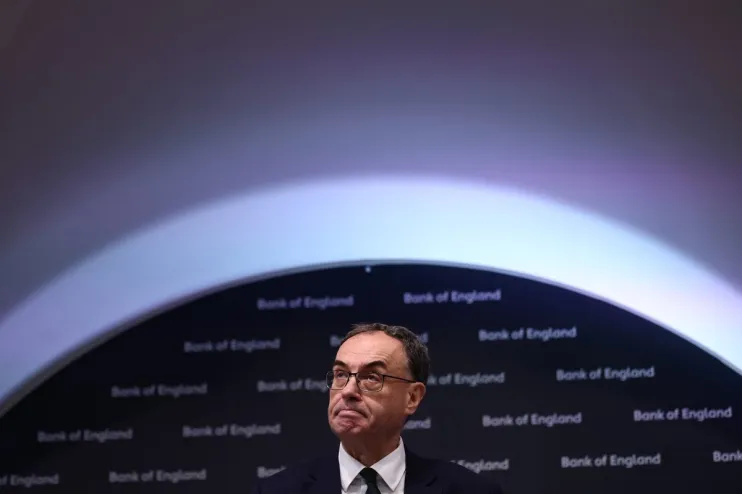Copyright cityam

The Bank of England has held interest rates at four per cent amid caution around high inflation levels ahead of Chancellor Rachel Reeves’ crucial Budget in three weeks. The Bank’s Monetary Policy Committee (MPC) voted 5-4 to hold interest rates as Governor Andrew Bailey, who made the deciding call at the latest meeting, said he would “prefer to wait” before backing further cuts. Policymakers at the Bank said the crunch decision weighed up contractions in the jobs market, which could lower inflation levels, and high inflation expectations of around 4 per cent among households in recent months, which would have the adverse effect. Inflation is only set to hit the Bank’s two per cent inflation target in the second quarter of 2027, gradually falling from its current level of 3.8 per cent. The Bank’s forecast made the same assumption in its last August report. The UK economy is expected to grow by 1.4 per cent both this year and in 2026. It revised its estimate up slightly for the current year but lowered it for next year. GDP growth is then expected to surge to 1.7 per cent in 2027 and 1.8 per cent in 2028. Bank policymakers clash on interest rates The Bank ditched “careful” from its policy guidance and said rates were on a “gradual path downwards”, with the minutes to the meeting highlighting that CPI inflation rate had “peaked” at a rate of 3.8 per cent. In an explanation for his policy decision, Bailey left the door open to voting for policy to be loosened in the coming months. “Upside risks to inflation have become less pressing since August, and I see further policy easing if disinflation becomes more clearly established in the period ahead,” Bailey said. “Rather than cutting Bank Rate now, I would prefer to wait and see if the durability in disinflation is confirmed in upcoming economic developments this year.” Some Bank officials were worried about elevated wage growth, with pay excluding bonuses rising 4.9 per cent in the three months to August. Others, however, were more fearful about further drops in vacancies and further damage to the UK jobs market. The Bank’s central projection slightly revised up its peak unemployment rate to 5.1 per cent in the second quarter of next year. Rising levels of savings among the Britons, keeping consumption growth “relatively weak”, could also lessen demand for goods as fears are brewing that lower interest rates are not incentivising people to spend more. Bank officials unmoved by Reeves The latest Bank decision on interest rates suggests policymakers were unfazed by public statements made by Reeves that she would use the upcoming Budget to curb the cost of living. The Chancellor has said she would aim to lower borrowing costs as she made strong hints she would break a Labour manifesto commitment not to raise income taxes given comments that “all” would have to contribute more. A hike to income taxes may be disinflationary given Britons’ spending powers would be hit. City analysts and business leaders have said raising income taxes would be the most effective method towards filling an estimated £30bn fiscal hole and building a larger headroom. Accelerating the push towards lower inflation levels across the UK could prompt the Bank to cut interest rates at a faster pace in the next year. Bank officials refused to pre-empt Budget policies given last year’s £25bn on employers’ national insurance contributions (NICs) forced firms to raise prices. The Bank’s latest report said the rise in NICs had “disproportionately” hit supermarkets, feeding into higher grocery prices. Food price inflation could hit 5.3 per cent by the end of the year, according to Bank estimates. Officials said the rise in NICs had already been passed through to consumers, with changes in the coming months likely to be less impactful. The report also noted that President Trump’s tariffs have had a small effect pushing down on prices in the UK due to trade diversion from China and other countries. Disruption in international trade did not play a large role in influencing MPC members’ votes. However, policymakers said tax rumours in the lead-up to the Budget had taken its toll on growth. The cyber attack on Jaguar Land Rover also held the UK economy back in the third quarter of the year.



